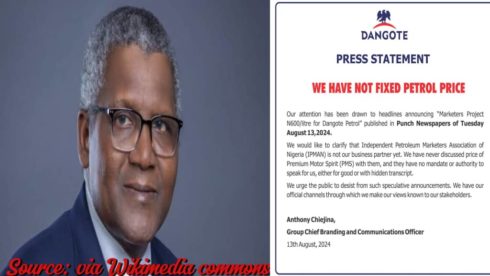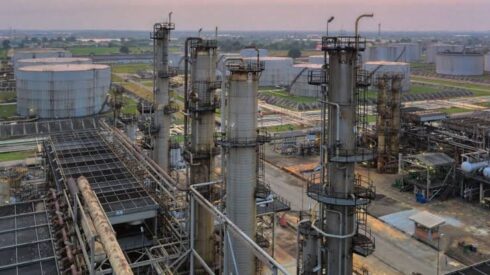Aliko Dangote, the billionaire owner of Dangote Group, has categorically denied allegations of fixing the price of petrol at N600 per liter. In a statement released by the company, Dangote vehemently refuted claims that he had unilaterally fixed the price of the essential commodity, describing the allegations as “misleading” and “unfounded”.
The denial comes amidst growing public concern over the recent hike in petrol prices, which has sparked widespread outrage and calls for government intervention. Dangote’s company, which is one of the largest conglomerates in Africa, has been at the center of the controversy, with many accusing the business mogul of exploiting his market dominance to fix prices.
Price Fixing Allegations Spark Public Outrage
The allegations of price fixing have sparked intense public debate, with many Nigerians taking to social media to express their outrage and frustration. The hashtag #DangoteMustExplain has been trending on Twitter, with many calling for the business mogul to explain the rationale behind the price hike.
The controversy has also drawn the attention of regulatory authorities, with the Nigerian National Petroleum Corporation (NNPC) and the Federal Competition and Consumer Protection Commission (FCCPC) launching investigations into the allegations. The outcome of the investigations is eagerly awaited, as Nigerians demand answers and relief from the crippling fuel prices.
Dangote’s Business Empire Under Scrutiny
Dangote’s business empire, which spans across various sectors including cement, sugar, and agriculture, has come under intense scrutiny in recent times. The company’s market dominance and alleged anti-competitive practices have raised concerns among industry stakeholders and regulators.
The price fixing allegations have added fuel to the fire, with many calling for greater transparency and accountability in the company’s business dealings. As the investigations continue, Dangote’s reputation and business interests hang in the balance, with potentially far-reaching consequences for the company and the Nigerian economy.
Regulatory Authorities Weigh In
The regulatory authorities have weighed in on the controversy, with the NNPC and FCCPC launching separate investigations into the allegations. The NNPC has assured the public that it is working to ensure that the price of petrol is stabilized and that marketers are not exploiting consumers.
The FCCPC, on the other hand, has warned against anti-competitive practices, stating that it will not hesitate to take action against any company found guilty of price fixing or other forms of market manipulation. The regulatory authorities’ intervention has provided some relief to the public, but the outcome of the investigations remains uncertain.
Industry Stakeholders React
Industry stakeholders have reacted to the controversy, with some calling for greater transparency and accountability in the pricing of petrol. The Major Oil Marketers Association of Nigeria (MOMAN) has denied any involvement in price fixing, stating that its members operate in a competitive market.
The Independent Petroleum Marketers Association of Nigeria (IPMAN) has also weighed in, calling for a review of the pricing template to ensure that it reflects the current market realities. As the controversy continues to unfold, industry stakeholders are watching with bated breath, eager to see how the situation will be resolved.
Public Demands Answers
The public is demanding answers and relief from the crippling fuel prices, with many calling for the government to intervene and stabilize the market. The controversy has sparked widespread outrage, with many Nigerians taking to social media to express their frustration and disappointment.
As the investigations continue, the public is eagerly awaiting the outcome, hoping that it will bring some relief from the high fuel prices. The government’s response to the crisis will be critical in determining the outcome of the controversy and the future of the Nigerian economy.
Table of Contents
Discover more from OGM News NG
Subscribe to get the latest posts sent to your email.













